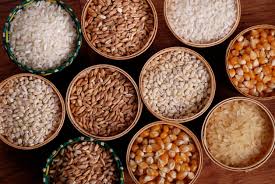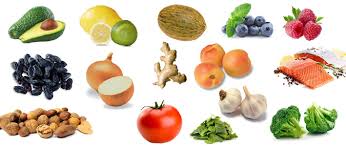Content of the Article
Grains are one of the foods that form the basis of our diet. Grain-free diet, which is applied both for allergies and intolerances and for weight loss, is becoming increasingly popular. A grain-free diet has some benefits, such as improving digestion, reducing inflammation and balancing blood sugar.
What is a grain-free diet?
This diet means not eating grains as well as foods derived from them. Wheat, harpgluten-containing grains such as rye, as well as dried corn, millet, rice, sorghum and oat Non-gluten grains such as non-gluten are also inedible in this diet.
Dry corn is also considered a grain. For this reason, foods made with corn flour should also be avoided. Rice syrup or high fructose corn syrup Components obtained from grains such as grains are also inedible.

How to apply a grain-free diet?
A grain-free diet entails not eating whole grains as well as grain-derived foods. Bread, pasta, muesli, Rolled oats, breakfast cerealsfoods like pastries…
There is no restriction on other foods in this diet. Meat, fish, eggs, nuts, seeds, sugar, oil and milk products are consumed.
What are the benefits of a grain-free diet?
Helps treat some diseases
- Grain-free diet autoimmune diseasesIt is applied by people who have
- Celiac disease is one of them. People with celiac disease should avoid all gluten-containing grains.
- People with a wheat allergy or intolerance should also avoid foods containing grains.
- Gluten intolerance Those who eat grains experience symptoms such as stomach pain, bloating, constipation, diarrhea, eczema, headache, fatigue. Not eating grains reduces these complaints.
Reduces inflammation
- Cerealsis the cause of inflammation, which causes the onset of chronic diseases.
- There is a link between consumption of wheat or processed grains and chronic inflammation.
Helps to lose weight
- A grain-free diet means staying away from high-calorie, nutrient-poor foods such as white bread, pasta, pizza, pies, and baked goods.
- This type of diet helps to lose weight.
Balances blood sugar
- Cereals naturally contain high amounts of carbohydrates. Refined grains such as white bread and pasta are also low in fiber.
- This causes them to be digested very quickly. It is therefore the cause of the sudden drop in blood sugar levels shortly after a meal.
- Grain-free diet helps balance blood sugar.
Improves mental health
- Studies have shown that gluten-containing foods are associated with anxiety, depression, ADHDassociates with autism and schizophrenia.
- Avoiding these foods is beneficial for mental health.
Relieves aches and pains
- Gluten-free diet, endometriosisIt reduces pelvic pain in women with
- Endometriosis is a disease that causes the tissue lining the uterus to grow outside of it.
Reduces fibromyalgia symptoms
- gluten free diet fibromyalgia It helps to reduce the widespread pain experienced by patients.
What are the harms of a grain-free diet?
While there are benefits to a grain-free diet, it also has some downsides.
Increases the risk of constipation
- With a grain-free diet, fiber consumption is reduced.
- Unprocessed grains are a source of fiber. Fiber adds bulk to stool, helps food move more easily through the intestines, and constipation reduces the risk.
- When you eat grain-free, you should eat more fiber-rich foods such as fruits, vegetables, legumes and nuts to reduce the risk of constipation.
Limits food intake
- Whole grains are good sources of nutrients, especially fiber, B vitamins, iron, magnesium, phosphorus, manganese ve selenium It provides.
- Research shows that adopting a grain-free diet without cause can increase the risk of nutrient deficiencies, especially in B vitamins, iron, and trace minerals.
References: 1










